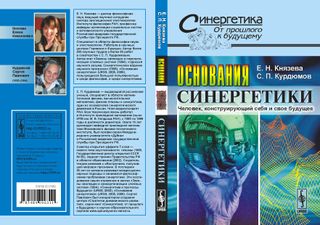?
Основания синергетики. Человек, конструирующий себя и свое будущее
Main concepts and models of the modern theory of self-organization of complex systems, called also synergetics, are generalized and formulated in the book as principles of a synergetic world view. They are under discussion in the context of philosophical studies of holism, teleology, evolutionism as well as of gestalt-psychology; they are compared with some images from the history of human culture. The original and unfamiliar (to the Western readers) research results of the Moscow synergetic school which has its center at the Keldysh Institute of Applied Mathematics of the Russian Academy of Sciences are expounded in the book. The heuristic value of the synergetic models of evolution and self-organization of complex systems in epistemology and cognitive psychology, education and teaching, futures studies, social management activities and systems of global security is shown in the book. The book is addressed to a wide circle of readers: students, teachers, scientists who are specialized in different fields of natural sciences and the humanities as well as to all readers who strive for using recent results of science for reflections and achieving success in their own life.
